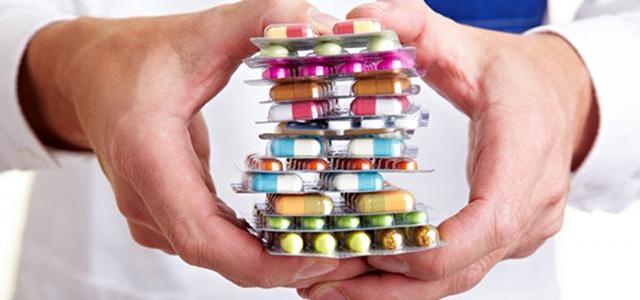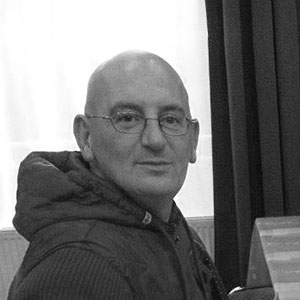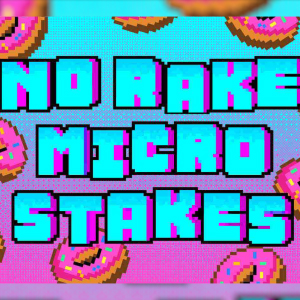Drug Testing Poker Tournaments
9 years ago

20 Dec
It might not be a question that the late, great Stu Ungar would have liked to hear – and it might not go down so well at your local home game either - but it HAS been asked. So… should poker tournaments be tested for performance enhancing substances?
I know, I know! How dare anyone raise the prospect of your Friday-night game being alcohol free, or that college dorm donkament missing a vital, sweet-smelling odour? How about your next casino visit, for the monthly $30 Monday Madness re-buy, requiring you to pee in a cup and reject all thoughts of coffee for the evening?
Madness!, I hear you cry.
Well don’t worry just yet. The question only appeared on the 2+2 forum rather than the WSOP website or EPT rules governing casino events.
Frank Yang, self-described as a ‘newbie’ on the popular forum, probably wishes he’d kept his ‘mouth’ shut though, as his question – admittedly with the proviso (e.g. high stakes internationally marketed poker tournaments at a minimum) – provoked a barrage of ridicule and ‘not in my home game’-type replies.
It’s a serious question!

And yet, despite the howls of derision and abuse, the question could be posed as a serious one. After all, the game of chess has been discussing this issue for years – and other card games such as bridge have also introduced drug testing. Even competitive e-sports have guidelines on use and misuse of ‘drugs’.
Now, it has to be said that in the cases of chess and bridge these somewhat ridiculous drug-testing measures came about because both games/sports were vying for inclusion in the Olympic Games! Olympic rules state that all sports must have mandatory testing, therefore…when Disa Eythorsdottir refused such a test back in 2002, she was stripped of her World Bridge Championship silver medal!
Banned? Are you kidding me?
One could only imagine what would have happened had such rules been in place that year (2002) for the WSOP Main Event. Of the 631 entrants that year, it’s likely that half of them would have fallen foul of the WADA (World Anti-Doping Agency) ‘banned substances list’.
Alcohol? Tick. Cannabioids? Tick. Beta-blockers? Tick. Designer drugs? Hmmm, possibly a tick for a couple of the high-rollers. Stimulants, narcotics, diuretics….in fact, it would be easier to list things which ARE allowed – pretty much only clear spring water would be at the poker table, and not much else!
OK, but let’s look at what somebody might gain from using such drugs, and what they might lose also.

Alcohol
We all know players who get rip-roaringly drunk at the table, and it’s not confined to just home games. The 1 985 WSOP Main Event champion,
Bill was the tightest player you'd ever played in your life when he was sober. And when he was halfway drunk, he was the best player I'd ever played with. No one could read opponents’ hands better than half- drunk Smith. But when he got past that halfway mark, he was the worst player I'd ever played with.”
Another famous player who would often appear drunk at the table was Scotty Nguyen. According to Pokerlistings:
During the ESPN broadcast of the 2008 Player’s Championship, Nguyen constantly needled opponents Erick Lindgren and Michael Demichele while swilling beers. At one point Nguyen started yelling for cocktail service at the final table."
As 2+2 poster AlbertoSocrates succinctly put it:
You expect people to play live poker sober? Wtf!”
Let’s be honest, apart from the small possible advantage of being aggressive when normally passive (which doubtless wouldn’t last long as in Bill Smith’s case above) most players would be happy to put up with some drunken belligerence if it meant they could more easily take a drunk’s money!
As for the testing/banning of alcohol during poker events – this will never happen. Can you even imagine a casino agreeing to such a thing? ‘We want our players to have their wits about them’ – yeah, right. Tournament organisers would end up running their events in the car park.

Weed/cannabis
Although almost all the cases of strong players smoking weed before or during a game are anecdotal, there is a general perception that doing it helps you to play better. The only problem with this ‘evidence’, of course, is that it comes from players who have just altered their sense of perception by smoking weed in the first place!
Celebrities such as Phil Hellmuth have gone on record to say they’ve smoked in the past, and the WSOP car park is supposedly legendary for such things, but what benefits would it really bring to your game?
A bit more calmness and time taken over decisions would easily be offset by the lack of awareness it brings – and then if you get deep in an event you’d spend more time taking care of your ‘munchies’ than playing cards!
On the drug-testing scale, weed and cannabis would be extremely low on any ‘banned substance list’ – it’s simply not a problem.

Nicotine
Smoking at the poker table used to be a perfectly normal part of the game. Cigarette smoke would fill halls and poker-rooms, a blue cigar haze mingling with it meaning that non-smokers would need a knife to cut through the air -let alone the tension -when a big pot arose.
Of course, in most countries such days are long gone – or at least on their way out – and despite the smokers' feeling that they are reducing stress every time they light up, the sad medical truth is that the opposite effect is actually coursing through your veins – blood pressure is increasing with every puff!
Testing for nicotine isn’t even an option –it’s in your body so long that you couldn’t possibly separate competitive and non-competitive use anyway.

Amphetamines
Now we are getting into the realm of potentially useful drugs which might warrant testing for. Cocaine, for example, is a hugely popular recreational drug – and the one which the legendary Stu Ungar favoured throughout his career. But then, look at what it did to him –his biography states that he began using cocaine on the advice of his poker-playing friends who needed it to get them through marathon poker sessions, but Ungar became seriously addicted and eventually died from abusing the substance.
The cons of dependency – addiction, side-effects and cost – hugely outweigh the temporary increase in awareness and heightened concentration provided by a dose of amphetamines. Still, should testing ever find its way into poker, cocaine would provide a big part of the ‘banned player list’ over any given year.

Adderall
This psychostimulant is the one mentioned most often when talking about increasing mental capacity during specific tasks. On the 2+2 forum, ‘Bachelder’, in response to being asked to ‘name some chemicals that are performance enhancing’ (for poker players), stated:
If you dont think adderall is performance enhancing, you’ve either a) never tried adderall, or b) are in denial.” He continued, “I used to take it in university around exam time, and I can confirm that it works. You’re focused and will never stray or procrastinate from what you’re doing. You’re not hungry and can stay awake for 24hrs easily.”
Naturally, if it was that simple everyone would be taking it all the time, but it has some serious side-effects which include ‘nervousness, restlessness, excitability, dizziness, headache, fear, anxiety, and tremors.’
Not exactly traits you’d want as a poker player really, and ‘bachelder’ finishes with the proviso:
I think it’s beneficial in moderation... unfortunately there are a ton of people that will surely abuse it and become addicted.”
While Adderall and similar substances are restricted substances in most areas (You need a hand written prescription from within 30 days. No refills allowed.), the drug still seems to be readily accessible to many. One side of this is that it isn't so hard to get an official prescription. The other is that many prescriptions are held by students who would rather see the financial return of selling individual pills than the benefits of using the drug themselves.
Eugeroics
There are even more modern versions of these drugs –initially created to help with narcolepsy and ADHD-type problems – available, such as Modafinil (also known as Provigil).
Poker pro Paul Phillips went on record as saying that using the drug helped him to win millions.
Poker is about sitting in one place, watching your opponents for a long time, and making better observations about them than they make about you,” he told the New Yorker magazine. “With Provigil I could process all the information about what was going on at the table and do something about it.”
Even if this were to help players, the d
As for testing – if they did introduce such a thing for poker events, this is where they might find the best ‘hits’. Anyone seeking to improve their play would likely be trying this kind of drug rather than any other.
Conclusion
As RimmerOdds stated: “You guys are in fantasy land if you don't think some players take drugs to improve their performance playing for serious money.”
The retort from ProRailbird kind of missed the point though:
You're also in serious fantasy land if you don't think people are taking drugs and drinking alcohol while playing for serious money and that it negatively impacts their performance to a huge extent.”
True, but any testing in big poker events would likely focus on those known to enhance performance – unless of course poker was aiming for the Olympics – then we’d be back to pouring your coffee in the nearest plant-pot and running for the exit at the first sign of guys with test-tubes!
Let’s face it, nobody in their right mind would attempt to test poker-players… would they?






Comments
You need to be logged in to post a new comment